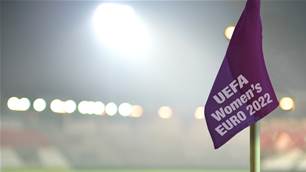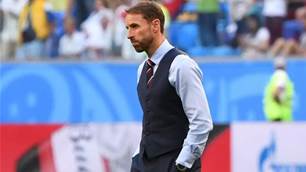He led Sweden to the World Cup final and masterminded a famous win over England, yet George Raynor struggled to get a decent job in his homeland. FFT tells his remarkable tale
Thankfully for Raynor, a chance meeting with England pair Matthews and George Hardwick before the opening match of his tenure against Switzerland handed him an advantage that he would never throw away. "Matthews and Hardwick had just played against the Swiss side [for an RAF XI]," Raynor recounted. "So I pumped them both for information, and after a long chat I knew everything there was to know."
It showed too, as Sweden romped to a 7-2 victory that eased the minds of the Swedish FA and provided Raynor's new charges with a massive injection of self-belief as the team headed to London for the 1948 Olympics.
It's ironic to think that the Olympics that became known as the Austerity Games provided a showcase for Sweden's finest talents and enabled the likes of Nils Liedholm, Gunnar Nordahl and Gunnar Gren to earn the chance to turn professional and earn huge sums of cash playing in Europe's richest league, Italy's Serie A. Liedholm - who would later manage Roma in a European Cup final against Liverpool - formed one part of the fabled 'Gre-No-Li' trio for AC Milan in the 1950s, but in 1948 he and Raynor had other things on their mind.
After establishing their camp in Richmond on the banks of the Thames, Sweden brushed aside Austria, South Korea and Denmark before overcoming Yugoslavia 3-1 at Wembley in front of 60,000. "Ah, English referee, English coach. Communist. It is bribery," one Yugoslav official ranted at the final whistle. But Raynor didn't care, he had just picked up a football gold medal at the Olympics - a feat that no other Englishman has repeated since. The sharks, meanwhile, were circling.
Italian clubs began offering Raynor cash in exchange for turning the heads of Swedish players. He later admitted such approaches "horrified" him, but they kept coming.
A delegation from an Italian club even tried to enter Sweden's dressing room before their semi-final against Denmark, and when Raynor was personally offered £1,000 and a car, he realised he was fighting a losing battle. "I knew that money, as always, would talk in the end," he said. England's top players knew just how the likes of Liedholm and Gren felt. Still earning a maximum of £12 a week - a ceiling that would continue until 1961 - the likes of Matthews and Tom Finney nevertheless travelled to Brazil for the 1950 World Cup confident that they could bring home the Jules Rimet trophy at England's first time of asking. How wrong they were. While Raynor's Sweden - even without Gre-No-Li - would finish third, England headed home in disgrace after a disastrous display in the group stages, which included a 1-0 defeat to the USA.
Sweden's dreams of glory were ended, not for the first time, by Brazil. Although, according to Raynor, "we had two chances before they even moved", a 7-1 defeat, coupled with a 3-2 loss against eventual winners Uruguay, meant that Sweden would finish third - a feat they would repeat at the 1952 Helsinki Olympics.
In the run-up to the Brazil World Cup, Raynor had left no stone unturned. He arranged for a dozen South American balls and 50 pairs of featherweight boots from Rio de Janeiro to be sent to Sweden's pre-tournament training camp. He even tracked down a Swede by the name of Mrs Petersen who was living in Rio and hired her to supervise the cooking and food preparation for his squad.
"It was on her advice that we left Sweden with a precious carton of famous hard Swedish biscuits, about a hundred pounds of cheese and home-cured hams," said Raynor.
His success in the international game was once again catching the attention of some of the biggest names in Italian football. Raynor had already turned down an offer of £10,000 to manage in Serie A in 1951, but when the opportunity arose following Sweden's failure to qualify for the 1954 tournament in Switzerland, Raynor realised it was too good to turn down.
"Please say if you're interested in coming to Italy and what your terms are," read a telegram message sent to Raynor's home from an Italian agent. "If I could have a choice of club in Italy I would choose Juventus," Raynor replied.
Within weeks the Yorkshireman was in Turin in the company of Juve owner Giovanni Agnelli, who took him to his Fiat factory. "Which one would you like?" the Italian asked.
He may have been driving a top-of-the-range Fiat, but Raynor's ride in Italy was anything but smooth. He signed a two-year contract with Juve, but just months later would find himself loaned to manage Lazio - where for the first and only time, England had two coaches in charge of both clubs in the Eternal City in the form of Raynor and Roma boss Jesse Carver.
In the summer of 1955, after becoming increasingly disillusioned with life in Italy, Raynor headed home with Carver as the pair took charge of Division Three South side Coventry City. "I was happy to leave Italy, for I wanted no part of a football set-up that seemed to me to be contaminated with bribery," he wrote. The arrival of Carver and Raynor represented a remarkable achievement for a Coventry side desperate to climb out of obscurity and into the big time. "Earl Shanks [the Sky Blues chairman] persuaded two managers working in Rome to come to Coventry, which was obviously a massive
coup," says City historian Jim Brown. "Mind you, the club was paying silly money."
Continued on next page...
Related Articles

World Cup favourites England have one gaping question left to answer

Rampant England reach Women's Euros final













